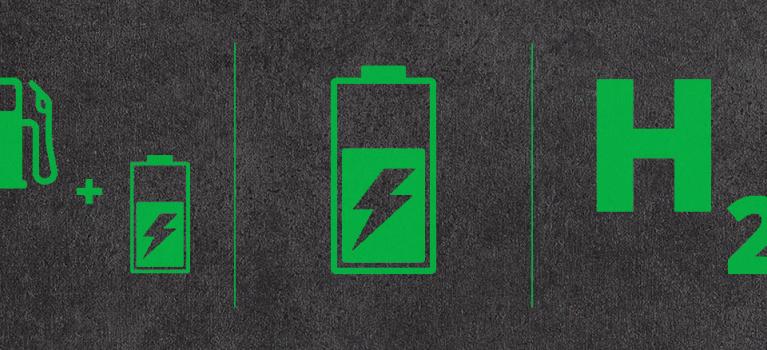Gasoline, Diesel or Electric? In order to help you keep track of all the possible engine types, innovations and new features available on the market, we wrote this brief overview for you.
We have examined all currently relevant engine types and evaluated them based on various scenarios and parameters. The detailed evaluation was resumed in a white paper and is available for you. In the white paper you will find further interesting information on technological backgrounds, costs, the current and new legal situation as well as the appropriate use of each type of engine.
Gasoline - Small cars for short distances
Gasoline is usually less expensive than other types of engines, like diesel for example. These type of cars also provide a high level of comfort. CO2 emissions have also been substantially reduced in comparison to past records. This makes gasoline cars well suited for cities in general.
Diesel - Long distances and clean combustion
Because of the past scandals, today's image of Diesel does not do justice to the clean and economical engines that have been recently developed. Despite its high CO2 emissions per litre of fuel, a diesel engine produces around 15% less CO2 than a gasoline engine. The emissions aftertreatment are at cause for the slightly higher prices of diesel vehicles. Diesel vehicles are particularly suitable for field staff or sales representatives who cover long distances. A diesel is also suitable if you intend to carry heavy loads and use a trailer.
Natural gas - Clean alternative to drive in the cities
Natural gas produces up to 20% less CO2 than a diesel engine. This alternative form of fuel is quite suitable for an everyday use, especially in the cities. In rural areas, this type of car is less practical because of the scarcity of the fuel station that provide natural gas. In terms of range and environmental compatibility, natural gas is convincing. This type of car is most suitable for field service, sales force employees as well as to be used as for a car pool.
Hybrid - Favourable thanks to its low consumption, but limited choice of models
While the combustion engine remains the main engine, the electric one - charged by energy provided from the driving of the car as well as the braking -, helps reduce the CO2 balance by up to 40%. Since a hybrid does not require users to get adapt to it and saves a considerable amount of fuel, it is a popular form of car and is suitable for many companies. However, there is currently only a very limited selection of vehicles and these are all Asian.
Plug-in hybrid - Main use consists of short distances, occasionally long distances
A plug-in hybrid, is charged the same way as an electric car. For longer distances, the combustion engine can be used as well. This interaction between two engine types means that plug-in hybrid vehicles are more expensive than gasoline, diesel, hybrids and even electric cars. The combustion engine in the vehicle involves plenty of expensive maintenance work, which is why choosing a purely electric car is often considered a better choice. The extra cost in the purchase price can be compensated to some extent by the savings made by the use of the electric engine.
Electric - inexpensive thanks to low-cost maintenance and electricity
In terms of space and driving satisfaction, electric cars equal, if not surpass, the combustion engines. Only in terms of mileage - which is highly dependent on the battery or model type as well as charging times, do electric cars have a disadvantage. Since there is no second type of engine in an electric car, it is in most cases only suitable if you have your own charger (wallbox) or have access to one that is close to your home. Electric cars are best suited for short trips. If longer distances occur from time to time, the company's fleet can be completed with diesel vehicles. Costs can be saved not only through electricity, but also because the costs of maintenance are very low.
Conclusion
The choice of the most suitable type of car for your company depends on the use you plan to make of it. In many cases, a combination of different vehicles is the most effective solution.
In order for you to not only have the right car type for your business, but also remain flexible at all times, we would like to introduce our car subscription model for your fleet. This will also give you access to different possibilities including trying out electromobility.
Car with all-inclusive subscription
Insurance, registration, taxes, and more – everything included. Around 40 models from various brands.










